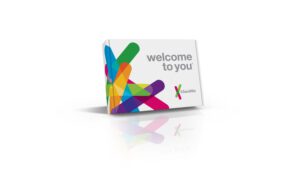23andMe made some news today, with the launch of a new experience for customers that includes the first and only direct-to-consumer  genetic service that meets U.S. FDA standards.
genetic service that meets U.S. FDA standards.
We invested nearly two years of work conducting extensive user testing, working with regulators, scientists, physicians, and top product design experts. Most importantly, we talked to 23andMe customers about how we could improve functionality, comprehension and create tools to improve your experience.
Take a look at our homepage to get a sense of how 23andMe is redefining how genetic information is delivered to people.
We are working to transition our existing customers to the new experience as quickly as possible, but some of that transition is dependent on validation and local requirements.
New customers can expect to begin receiving results within six to eight weeks of returning their samples to our lab.
On the blog in the coming months, we’ll highlight some of what customers will see in the new product and explore some of the new offerings including new carrier status* reports, wellness reports, information about traits and ancestry, as well as updated tools for exploring more aspects of their own genetic information.
Existing customers will receive an email about the transition with links of where to go if they have questions. In the meantime, customers can go here for answers to some of the more frequently asked questions.
As 23andMe co-founder and CEO, Anne Wojcicki said today, “This is an incredibly dynamic time in genetics and we’re excited to be at the leading edge of bringing genetics directly to individuals as they begin to learn about their 23 pairs of chromosomes.”
Stay tuned for more to come.
*Our tests] can be used to determine carrier status in adults from saliva collected using an FDA-cleared collection device (Oragene DX model OGD.500.001), but cannot determine if you have two copies of the genetic variant. Each test is most relevant for people of certain ethnicities. The tests are not intended to diagnose a disease or tell you anything about your risk for developing a disease in the future. On their own, carrier status tests are not intended to tell you anything about the health of your fetus, or your newborn child’s risk of developing a particular disease later in life.